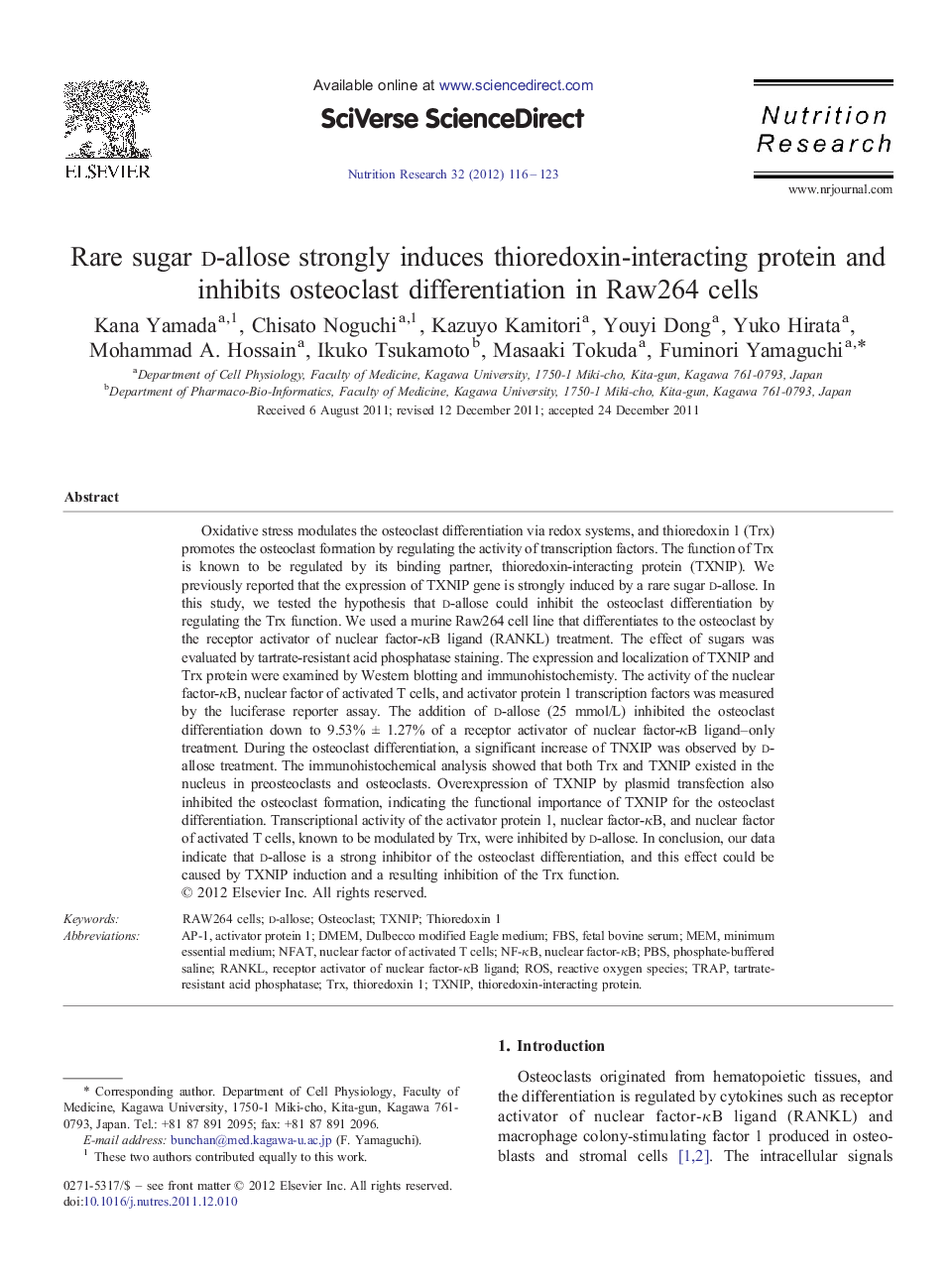| کد مقاله | کد نشریه | سال انتشار | مقاله انگلیسی | نسخه تمام متن |
|---|---|---|---|---|
| 2809084 | 1158008 | 2012 | 8 صفحه PDF | دانلود رایگان |

Oxidative stress modulates the osteoclast differentiation via redox systems, and thioredoxin 1 (Trx) promotes the osteoclast formation by regulating the activity of transcription factors. The function of Trx is known to be regulated by its binding partner, thioredoxin-interacting protein (TXNIP). We previously reported that the expression of TXNIP gene is strongly induced by a rare sugar d-allose. In this study, we tested the hypothesis that d-allose could inhibit the osteoclast differentiation by regulating the Trx function. We used a murine Raw264 cell line that differentiates to the osteoclast by the receptor activator of nuclear factor-κB ligand (RANKL) treatment. The effect of sugars was evaluated by tartrate-resistant acid phosphatase staining. The expression and localization of TXNIP and Trx protein were examined by Western blotting and immunohistochemisty. The activity of the nuclear factor-κB, nuclear factor of activated T cells, and activator protein 1 transcription factors was measured by the luciferase reporter assay. The addition of d-allose (25 mmol/L) inhibited the osteoclast differentiation down to 9.53% ± 1.27% of a receptor activator of nuclear factor-κB ligand–only treatment. During the osteoclast differentiation, a significant increase of TNXIP was observed by d-allose treatment. The immunohistochemical analysis showed that both Trx and TXNIP existed in the nucleus in preosteoclasts and osteoclasts. Overexpression of TXNIP by plasmid transfection also inhibited the osteoclast formation, indicating the functional importance of TXNIP for the osteoclast differentiation. Transcriptional activity of the activator protein 1, nuclear factor-κB, and nuclear factor of activated T cells, known to be modulated by Trx, were inhibited by d-allose. In conclusion, our data indicate that d-allose is a strong inhibitor of the osteoclast differentiation, and this effect could be caused by TXNIP induction and a resulting inhibition of the Trx function.
Journal: Nutrition Research - Volume 32, Issue 2, February 2012, Pages 116–123